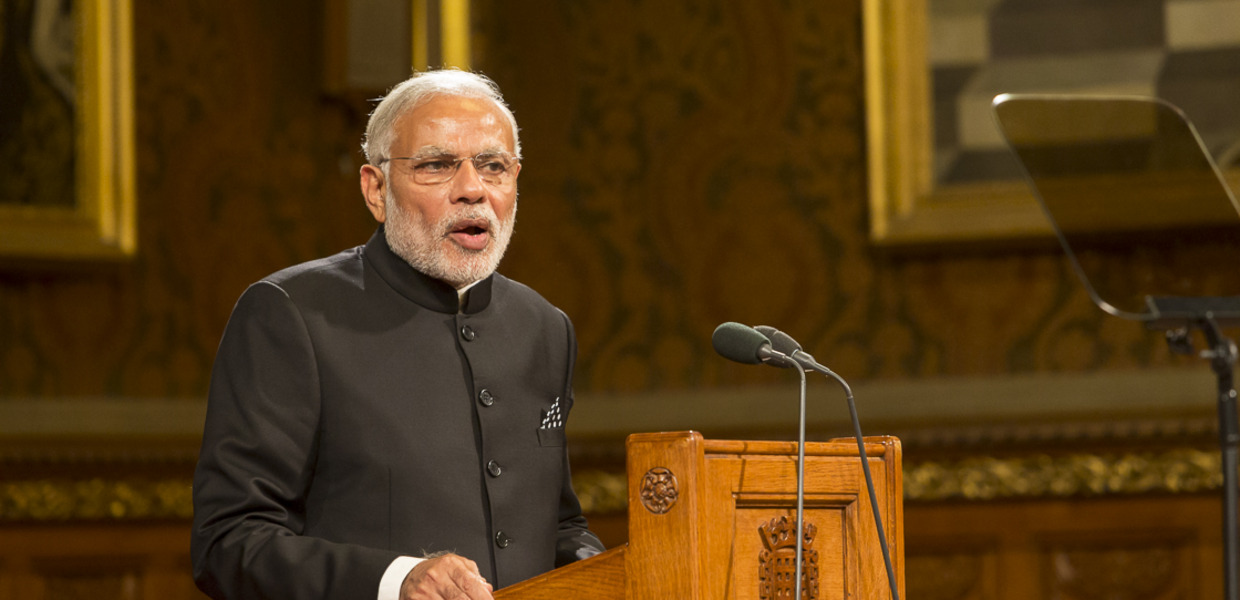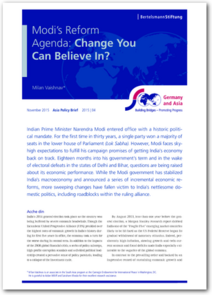Indian Prime Minister Narendra Modi entered office with a historic political mandate. For the first time in thirty years, a single party won a majority of seats in the lower house of Parliament (Lok Sabha). However, Modi faced sky-high expectations to fulfill his campaign promises of getting India's economy back on track. Eighteen months into his government's term and in the wake of electoral defeats in Delhi and Bihar, questions are being raised about its economic performance.
In the new issue of the Asia Policy Brief Milan Vaishnav, an associate in the South Asia program at the Carnegie Endowment for International Peace in Washington, DC, analyzes the reform agenda of the Modi government. He argues that while Modi has stabilized India’s macroeconomy and announced a series of incremental economic reforms, more sweeping changes have fallen victim to India’s nettlesome domestic politics, including roadblocks within the ruling alliance.
The Modi government wisely prioritized macroeconomic stabilization in its initial period in office to stem the economic malaise it inherited, and the decision to do so has paid off handsomely: while India’s economy still has its vulnerabilities, it is in markedly better position to weather global economic headwinds than was the case just two years ago. On the broader economic reform agenda, however, the government’s record is open to constructive criticism. While its attempt to ease stringent land acquisition legislation failed, the government has successfully implemented important, albeit incremental, changes with respect to the investment climate, subsidy reform, natural resource policies and finance/monetary reforms.
Given the array of external and internal constraints on the government, further enhanced by recent election defeats, the Modi government is unlikely to deviate from its gradualist path. Even operating within its comfort zone, the Modi government can use India’s federal system to push reform at the state level and leverage externally imposed constraints to alter its public finance priorities. In truth, the most fundamental reforms – those relating to administration and governance – represent the most efficacious long-term investment the government can make.
In the Asia Policy Briefs renowned experts and authors from the Bertelsmann Stiftung analyze important developments in Asia and their consequences for Germany and Europe. The short briefing papers focus on current events as well as underlying trends in important Asian countries. All Asia Policy Brief editions can be downloaded here.

